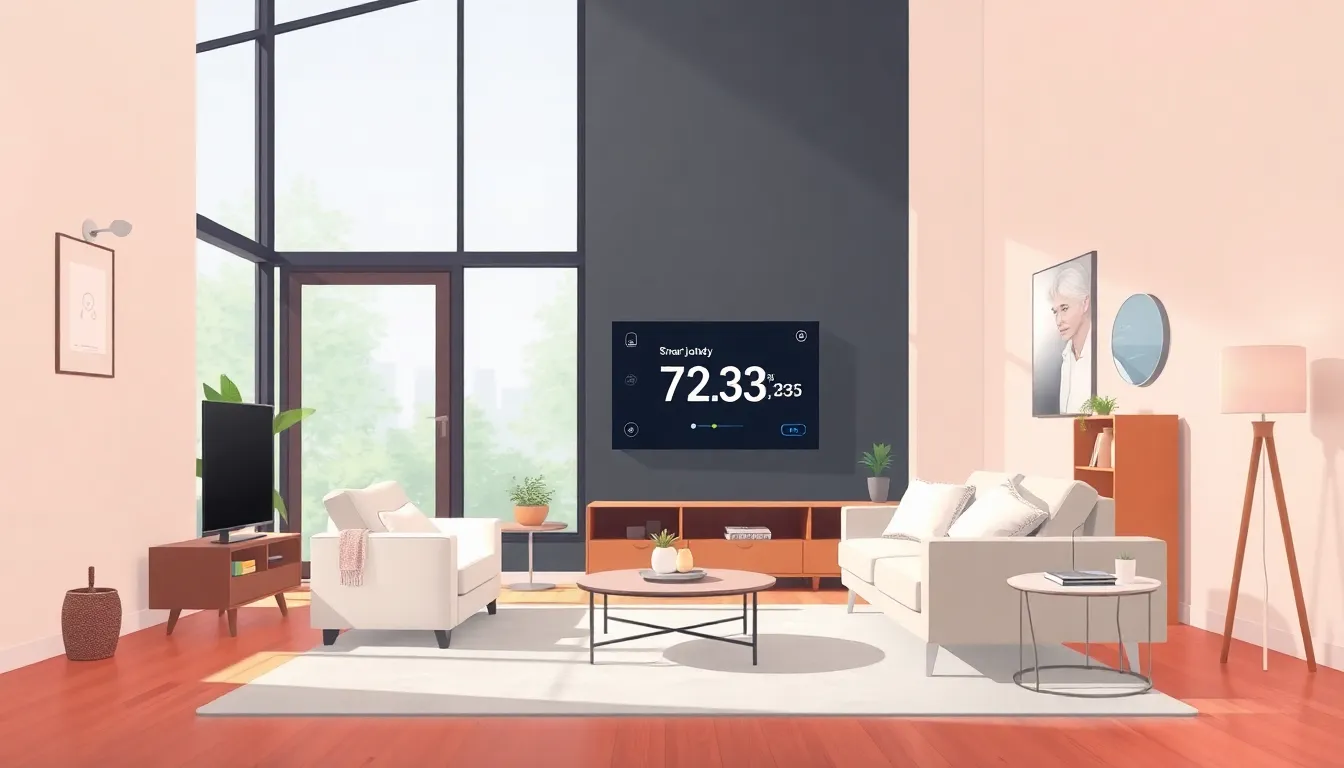Table of Contents
ToggleReal estate isn’t just about buying and selling houses anymore; it’s a dynamic world where trends shift faster than a cat meme goes viral. As the market evolves, savvy investors and homebuyers need to stay ahead of the curve. From eco-friendly homes to smart technology, the landscape is changing in ways that might just make you rethink your living space—or at least your coffee table.
Picture this: a home that not only looks good but also saves the planet and keeps you connected. Sounds like science fiction? It’s not! With emerging trends redefining what it means to live and invest in real estate, there’s never been a better time to dive in. Buckle up as we explore the latest trends that are shaping the future of real estate—because who wouldn’t want to be in the know while sipping their morning coffee?
Overview of Emerging Trends in Real Estate
Innovative developments are redefining the real estate sector. Eco-friendly homes now capture attention as buyers seek sustainable living options. This shift prioritizes energy efficiency, which often translates to lower utility costs and a minimal environmental impact. Smart technology also plays a pivotal role. Properties equipped with automation features offer convenience and security, attracting tech-savvy consumers.
Urbanization drives demand for mixed-use developments. These spaces blend residential, commercial, and recreational areas, promoting walkability and convenience. Enhancements in transportation infrastructure further encourage buyers to consider suburban areas, resulting in an increased interest in remote work-friendly homes.
An emphasis on health and wellness reshapes design features in new constructions. Properties designed with ample natural light, green spaces, and air quality improvements become more appealing. Moreover, the trend of co-living spaces has emerged, catering primarily to young professionals and urban dwellers, fostering community living while reducing costs.
Another notable trend involves investment in real estate technology. Platforms utilizing artificial intelligence enhance property management and streamline transactions, increasing efficiency. Blockchain technology ensures transparency and security in property dealings, attracting an audience interested in innovative solutions.
Data-driven decision-making is becoming crucial for investors and developers. Analytics tools provide insights into market trends, helping stakeholders make informed choices. The evolving landscape necessitates awareness of these trends for successful navigation in the real estate market.
Technology and Innovation

Innovation drives the real estate industry, introducing transformative technologies that enhance buyer experiences and streamline processes.
Smart Home Features
Smart home features increasingly appeal to modern buyers. Home automation systems improve energy efficiency and security. Devices like smart thermostats optimize energy consumption, which reduces utility costs. Security cameras and smart locks provide peace of mind, appealing to safety-conscious consumers. Additionally, voice-activated assistants simplify daily tasks, enhancing convenience. Homes equipped with smart technology frequently attract tech-savvy buyers who appreciate integration and control from their mobile devices.
Virtual Reality in Real Estate
Virtual reality (VR) continues to revolutionize property viewings. Buyers can explore properties remotely, saving time and resources. High-quality virtual tours offer immersive experiences, allowing potential homeowners to visualize spaces better. Developers often utilize VR to showcase properties before construction, attracting early interest and investments. Additionally, VR enables real estate agents to present multiple listings simultaneously, enhancing client engagement. Enhanced visual tools facilitate informed decision-making, marking a shift in how properties are marketed and sold.
Sustainability in Real Estate
Sustainability is reshaping real estate practices. It’s vital for developers and investors to embrace eco-friendly solutions that resonate with modern buyers.
Green Building Practices
Green building practices prioritize energy efficiency and sustainable materials. Developers increasingly incorporate features like recycled materials, efficient insulation, and water-saving systems. Energy-efficient designs, such as passive solar design, decrease reliance on heating and cooling systems. Certifications like LEED and Energy Star provide valuable benchmarks for evaluating sustainability efforts. Properties that meet these standards attract environmentally conscious buyers, enhancing marketability. Urban projects often include green roofs and living walls, further promoting biodiversity and reducing urban heat.
Renewable Energy Sources
Renewable energy sources play a pivotal role in sustainable real estate. Solar panels have emerged as a popular addition, providing homeowners with the ability to generate their own electricity. Wind energy is gaining traction, especially in larger developments. Properties that utilize geothermal energy systems benefit from reduced utility costs and lower carbon footprints. Developers incorporate these energy options into new builds to appeal to buyers who prioritize green living. Investing in renewable energy not only benefits the environment but also enhances long-term property value.
Urban Development Trends
Urban development is continually evolving in response to the changing needs of communities, influencing how people live and work. Mixed-use developments and smart city initiatives are at the forefront of these trends.
Mixed-Use Developments
Mixed-use developments blend residential, commercial, and recreational spaces to create vibrant communities. Residents enjoy convenience as they access shops, restaurants, and parks within walking distance. These spaces foster a sense of community and encourage social interactions. Investment in mixed-use properties is rising, driven by demand for walkable neighborhoods that support sustainable living. Developers prioritize creating environments that enhance quality of life and reduce reliance on cars.
Smart City Initiatives
Smart city initiatives focus on integrating technology into urban planning to improve infrastructure and services. IoT devices gather data to streamline transportation, reduce energy consumption, and enhance public safety. City officials leverage analytics to make informed decisions, ensuring efficient resource allocation. Public transport systems become more accessible and efficient, contributing to lower traffic congestion. Investment in smart city technologies promotes sustainability and enhances citizens’ overall experience in urban centers.
Market Dynamics
Market dynamics reflect significant shifts in real estate influenced by modern lifestyles. Emerging trends highlight the increasing relevance of remote work as a driving force within the sector.
Remote Work Influences
Remote work drives demand for suburban and rural properties. Many professionals seek homes that offer ample space for home offices and family activities. Changes in workplace flexibility lead buyers to consider locations away from city centers, fostering interest in areas with lower housing costs. As a result, the market witnesses a surge in homebuyers prioritizing convenience and lifestyle over urban proximity. Additionally, communities with access to reliable internet and essential services become more attractive, reshaping traditional buyer preferences.
Affordability and Accessibility
Affordability continues to impact real estate’s landscape significantly. Rising home prices compel many buyers to explore diverse housing options, including co-living and smaller homes. Investors increasingly recognize the importance of creating affordable housing solutions that cater to various income levels. Furthermore, marginalized communities gain attention as developers focus on inclusion and accessibility. Enhanced transportation options further improve accessibility, connecting remote areas to urban centers and spurring development in previously overlooked locations. Market trends reflect a collective commitment to ensuring housing remains attainable for a broader audience.
The real estate landscape is undergoing significant transformation driven by emerging trends that prioritize sustainability and technology. As buyers increasingly seek eco-friendly homes and smart features, the market is adapting to meet these demands. Urbanization and the rise of remote work are reshaping preferences for living spaces, leading to a greater focus on community-oriented developments.
Investors and developers must remain vigilant in monitoring these trends to ensure they align with consumer expectations. Embracing innovative solutions and sustainable practices will not only enhance property value but also contribute to a more responsible real estate market. Staying informed and adaptable will be key for anyone looking to navigate this evolving industry successfully.




